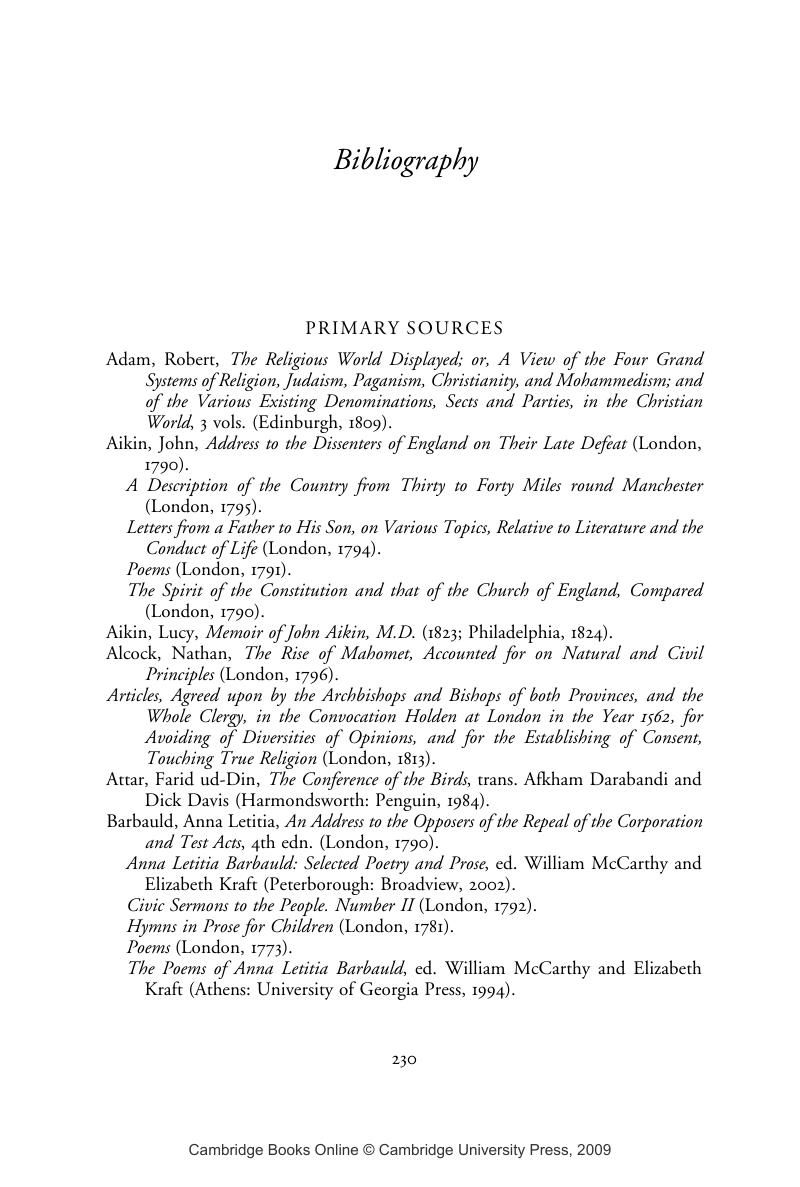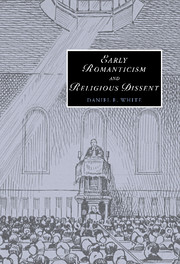Book contents
- Frontmatter
- Contents
- List of illustrations
- Acknowledgments
- Frequently cited texts
- Epigraph
- Introduction
- 1 “True Principles of Religion and Liberty”: liberal Dissent and the Warrington Academy
- 2 Anna Barbauld and devotional tastes: extempore, particular, experimental
- 3 The “Joineriana”: Barbauld, the Aikin family circle, and the Dissenting public sphere
- 4 Godwinian scenes and popular politics: Godwin, Wollstonecraft, and the legacies of Dissent
- 5 “Properer for a Sermon”: Coleridgean ministries
- 6 “A Saracenic mosque, not a Quaker meeting-house”: Southey's Thalaba, Islam, and religious nonconformity
- 7 Conclusion
- Notes
- Bibliography
- Index
- CAMBRIDGE STUDIES IN ROMANTICISM
- References
Bibliography
Published online by Cambridge University Press: 22 September 2009
- Frontmatter
- Contents
- List of illustrations
- Acknowledgments
- Frequently cited texts
- Epigraph
- Introduction
- 1 “True Principles of Religion and Liberty”: liberal Dissent and the Warrington Academy
- 2 Anna Barbauld and devotional tastes: extempore, particular, experimental
- 3 The “Joineriana”: Barbauld, the Aikin family circle, and the Dissenting public sphere
- 4 Godwinian scenes and popular politics: Godwin, Wollstonecraft, and the legacies of Dissent
- 5 “Properer for a Sermon”: Coleridgean ministries
- 6 “A Saracenic mosque, not a Quaker meeting-house”: Southey's Thalaba, Islam, and religious nonconformity
- 7 Conclusion
- Notes
- Bibliography
- Index
- CAMBRIDGE STUDIES IN ROMANTICISM
- References
Summary

- Type
- Chapter
- Information
- Early Romanticism and Religious Dissent , pp. 230 - 255Publisher: Cambridge University PressPrint publication year: 2007



